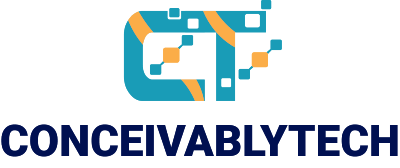In the age of information technology, conducting research has been revolutionized by the advent of the internet. The vast expanse of the digital realm, with its multitude of websites, articles, and resources, has transformed how we seek knowledge. Among the most crucial tools at our disposal is the general internet search, which is indispensable in the research process. This article delves into the significance of internet searches for research, exploring how they provide quick access to diverse information, enable real-time updates, and offer various search techniques. However, we also address the challenges of credibility, information overload, and language barriers while offering best practices to optimize the benefits of internet searches in the pursuit of valuable insights and knowledge.
How Does A General Internet Search Help In The Research Process?
A general internet search is an invaluable asset in the research process for several reasons. Firstly, it provides quick and convenient access to an immense pool of information from diverse sources. Researchers can access up-to-date data, articles, and reports, enhancing the relevance and accuracy of their work. Utilizing advanced search techniques and filters allows researchers to refine their queries, yielding more precise results. However, it’s crucial to be mindful of credibility issues and information overload, ensuring that sources are reputable and relevant. Overall, leveraging a general internet search empowers researchers to explore various perspectives, streamline information gathering, and make informed research decisions.
Explanation Of Search Engines And Their Role In Internet Searches
Search engines are sophisticated software systems designed to retrieve and present information from the vast expanse of the internet in response to user queries. They play a fundamental role in internet searches as the gateway for users to access information on virtually any topic. Here’s an explanation of search engines and their crucial role in internet searches:
Indexing and Crawling: Search engines use automated programs called “web crawlers” or “spiders” to explore the internet continuously. These crawlers visit web pages, analyze their content, and follow links to other pages, creating an index of the information they find. This process is known as indexing, allowing search engines to have a vast database of web pages and their content.
Relevance and Ranking Algorithms: When a user enters a search query, the search engine analyzes the indexed content to determine the most relevant results. These algorithms consider various factors, including keyword usage, page authority, user engagement, and the freshness of the content. The search engine then ranks the results based on their perceived relevance to the user’s query.
Retrieving Results: After the search engine’s algorithm has ranked the indexed pages, it presents the results to the user. The most relevant pages appear at the top of the search results page, followed by progressively less relevant ones. Typically, search engines display a snippet of the page’s content along with its title and URL to help users gauge its relevance.
User Experience and Interface: Search engines strive to offer a user-friendly experience. They continually refine their algorithms to understand user intent better and provide more accurate results. Additionally, they often incorporate features like auto-suggestions, related searches, and filters to assist users in refining their queries and finding the desired information quickly.
Universal Search: Modern search engines go beyond displaying just web pages. They may offer various types of content, such as images, videos, news articles, maps, and even real-time data. This approach, known as universal search, ensures that users get comprehensive and diverse results for their queries.
Personalization: Many search engines personalize their results based on the user’s search history, location, and other relevant factors. This personalization aims to offer more relevant and tailored results to individual users, enhancing the overall search experience.
Different Stages Of The Research Process
The research process typically consists of several stages, each crucial for producing credible and well-structured research. While the specific stages may vary depending on the nature of the research, here are the general stages commonly followed:
This initial stage involves defining the research question or problem to be addressed. Researchers explore topics of interest, review existing literature, and identify gaps in knowledge to determine a relevant and meaningful research problem.
In this stage, researchers conduct a comprehensive review of existing literature, academic papers, books, and other relevant sources related to their research topic. The literature review helps to understand the current state of knowledge, identify critical theories and findings, and ascertain the context for the research.
Building on the literature review, researchers develop specific research objectives and hypotheses. Research objectives outline the study’s goals, while hypotheses are testable predictions that the research aims to verify or refute.
This stage involves designing the overall structure and methodology of the research. Researchers decide on the research approach (qualitative, quantitative, or mixed), select data collection methods (surveys, interviews, experiments, etc.), and determine the sample size and selection process.
Researchers collect relevant data according to the chosen research design. This may involve conducting surveys, interviews, experiments, observations, or analyzing existing datasets. Data collection must adhere to ethical guidelines and ensure data validity and reliability.
Once the data is collected, researchers analyze it using appropriate statistical or qualitative analysis techniques. The analysis aims to draw meaningful insights, test hypotheses, and answer the research questions.
In this stage, researchers interpret the findings of the data analysis in the context of the research objectives and the existing literature. They discuss the implications of their results and identify any limitations or areas for future research.
Based on interpreting results, researchers draw conclusions that answer the research question and fulfill the research objectives. Conclusions should be well-supported by the data and align with the study’s scope and objectives.
Popular Search Engines And Their Features
Several popular search engines dominate the internet landscape, each with unique features and functionalities. Here are some of the most widely used search engines and an overview of their key characteristics:
Google:
Google is undoubtedly the most dominant search engine globally, known for its powerful and comprehensive search capabilities. It utilizes sophisticated algorithms like PageRank to rank web pages based on relevance and authority. Google’s homepage is minimalistic and user-friendly, featuring a single search bar where users can enter their queries. It provides real-time suggestions as users type and offer “Google Instant” results, displaying possible matches before the entire query is entered. Google also incorporates “featured snippets,” which extract concise answers to common questions directly from web pages, making it convenient for users to find quick answers. Additionally, Google offers specialized search features like image search, video search, news search, and much more.
Bing:
Bing, operated by Microsoft, is another popular search engine that competes with Google. It boasts a visually appealing homepage with stunning background images that change daily. Bing’s search results page often displays high-resolution images related to the search query, enhancing the user experience. Bing’s “Snapshot” feature provides information from various sources, including Wikipedia, Yelp, and more, directly on the search results page. It also offers a “Video Preview” feature, allowing users to preview videos by hovering over the thumbnail without leaving the search results page. Bing strongly focuses on local search and provides detailed maps and location-related information.
Yahoo:
Yahoo is a well-established search engine that offers a diverse range of services, including email, news, and entertainment. Although it utilizes Bing’s search technology, it still maintains its unique search features. Yahoo’s search results page includes a news feed section displaying the latest headlines and trending stories. It also integrates Yahoo Answers, a community-driven Q&A platform, which often appears in search results when relevant to the query. Additionally, Yahoo offers specialized search sections for images, videos, and shopping.
Duckduckgo:
DuckDuckGo is a privacy-focused search engine that gained popularity for its commitment to user data protection and anonymity. Unlike many other search engines, DuckDuckGo does not track user activity or personalize search results based on past behavior. It emphasizes privacy by default and does not store or share user information. While it may offer fewer features than other search engines, DuckDuckGo has steadily grown in popularity among users who prioritize data privacy and want a clean, uncluttered search experience.
Baidu:
Baidu is China’s most widely used search engine and is a prominent search platform in the Chinese-speaking world. It offers various search services, including web search, image search, video search, and even online forums. Due to the Chinese government’s strict internet regulations, Baidu’s search results are heavily censored and filtered to comply with local restrictions. Baidu also provides additional services, such as Baidu Baike (similar to Wikipedia) and Baidu Maps.
Utilizing Advanced Search Techniques
- Placing a phrase within quotation marks narrows the search results to exact matches of the phrase. This is especially useful when searching for specific terms or quotes.
- Using Boolean operators, users can combine or exclude keywords to refine search results. “AND” narrows the search by requiring both terms to be present, “OR” broadens the search by requiring either term and “NOT” excludes specific terms from the results.
- To search within a particular website or domain, use “site:” followed by the website URL. For example, “site:wikipedia.org artificial intelligence” will only show results from Wikipedia related to artificial intelligence.
- To find specific file types, such as PDFs or Word documents, use “filetype:” followed by the file extension. For instance, “filetype: pdf climate change” will display search results containing PDF documents related to climate change.
- Using an asterisk as a wildcard in a search term allows for word variations. For instance, “educate*” will retrieve results for “education,” “educational,” and “educator.”
- The tilde symbol (~) before a search term helps find related terms and synonyms. For example, ” ~automobile” will also include results for “car” and “vehicle.”
Final Words
In the age of boundless information, the power of the internet and its search engines has transformed the landscape of research and knowledge acquisition. Leveraging the benefits of a general internet search in the research process has become indispensable for researchers, students, professionals, and curious minds. Through quick and convenient access to a vast array of information, real-time updates, and advanced search techniques, the internet empowers us to explore diverse perspectives, stay up-to-date with the latest developments, and make informed decisions.
FAQ’s
What is a general internet search?
A general internet search refers to using search engines to find information on the internet. Users enter keywords or phrases related to their topic of interest, and the search engine provides a list of relevant web pages, articles, images, videos, and other content.
Which are the popular search engines used for general internet searches?
Some popular search engines for general internet searches include Google, Bing, Yahoo, DuckDuckGo, and Baidu (popular in China).
How does a general internet search help in the research process?
General internet searches provide researchers with quick access to a vast amount of information from various sources. It allows them to stay up-to-date with the latest developments, access diverse perspectives, and find relevant data to support their research questions or objectives.


